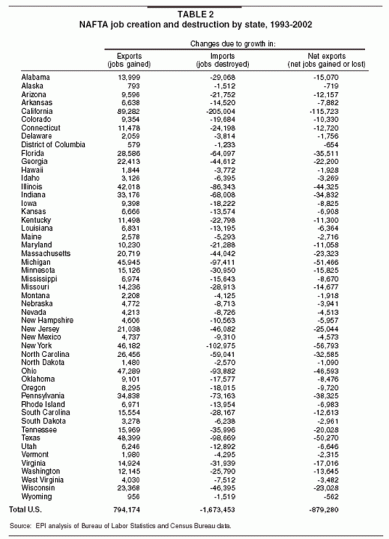NAFTA affected the U.S. labor market
Measuring the impact of a specific trade deal on a country's labor market is not a straightforward exercise, and analysts disagree on how to gauge NAFTA's effects. The USTR claims a broadly positive influence, citing figures that show an increase in overall U.S. employment of 24 percent since NAFTA's inception, as well as declining unemployment rates over the same period. In addition, the USTR cites data showing that inflation-adjusted U.S. wages rose 19.3 percent between 1993 and 2007, as compared to only 11 percent in the fourteen years prior.
Many economists agree that NAFTA has had some positive impact on overall U.S. employment. But most also agree that gains have been accompanied by some painful side effects. , a senior fellow at the Council on Foreign Relations, notes that wages with labor productivity and that income inequality has risen in recent years, in part due to pressures on the U.S. manufacturing base. To some extent, he says, trade deals have hastened the pace of these changes in that they have "reinforced the globalization of the American economy."
Opponents of NAFTA take a starker position. lee is policy director for the AFL-CIO, which opposes NAFTA and lobbies against other free trade agreements as unfair to U.S. workers and corporations unless they include provisions that require signatory countries to raise labor and environmental standards. Lee argues one of the main upshots of the deal has been to "force workers into more direct competition with each other, while assuring them fewer rights and protections."




